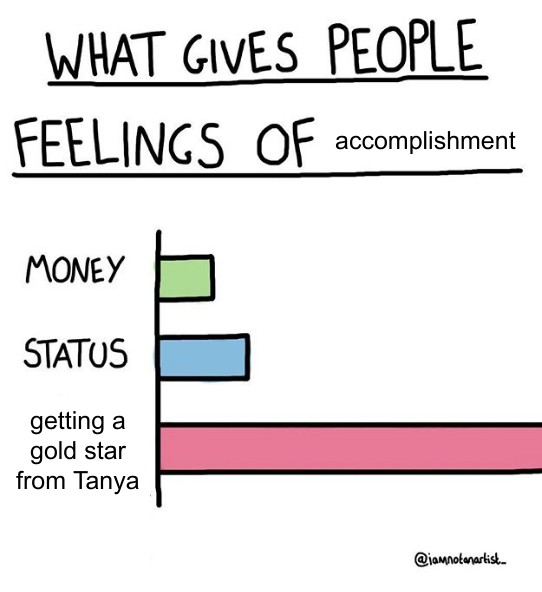Follow Your Heart?
“Follow your heart!” This is the most common advice for young people contemplating their future career path. This is not good advice. At some point in my life, the most popular aspiration among my friends’ children was to become opera singers. But the world only has room for a few opera singers. All of these children ended up doing something completely unrelated.
Aspiring to be a mathematician is a much more practical dream. There are so many professions that are friendly to mathematicians: actuary, finance, economics, teaching, computer science, cryptography, and programming, to name a few. Unlike opera singers, skilled mathematicians can find a way to get paid for their mathematical gifts.
However, most of the youngsters around me want to be research mathematicians. This is a different story. My adviser, Israel Gelfand, told everyone that if they could survive without mathematics, they should drop it. I did drop mathematics for some time to care for my children, but I couldn’t live without mathematics. I fed math to my children for breakfast and pursued math hobbies that could fit a single mother’s lifestyle. Well, that means I was mostly working with sequences for the Online Encyclopedia of Integer Sequences and building the database for my Number Gossip website. But I digress.
I agree with Gelfand. Research in math as a career choice is non-trivial. Here are some of the big issues:
- Money. An entry-level salary for MIT undergraduate alums is about twice as much as graduate students’ stipends. This discrepancy in income continues for a long time.
- Location. It is challenging to find a professorship. People looking for academic jobs are expected to send hundreds of job applications and accept a position anywhere in the country. This might be unacceptable for people who value their family and roots.
- Time. Many research mathematicians I know work 24/7. Not always by choice. Some want to secure a future tenure and need to publish papers in addition to teaching innovative courses. Some do want to do research but are too distracted with their routine and administrative tasks. As a result, their research spills out into nights and weekends.
- Gender and such. Discrimination is a separate big problem for women and minorities, which I do not want to discuss today.
So what would I suggest for young people who love math?
Many people who love math do not really love math per se. They love the way of thinking that math encourages. They love logic, generating ideas, precision, innovation, and so on. This makes their potential job search much wider. Such people might enjoy programming, cryptography, data science, actuarial science, finance, economics, computer science, engineering, etc. I know students planned to become mathematicians but tried an internship in finance and found their real passion.
For those who want to be closer to mathematics, there is always teaching: the world needs way more math teachers than research mathematicians. Plus, teaching provides a strong feeling of making an impact.
So what do I suggest for young people who love opera singing?
Many skills are less in demand than mathematics. It is important to be realistic. So here is my advice:
- Expand your skill set. If you love opera singing, working as a voice coach might be a solution.
- Explore secondary interests. If you also enjoy programming, you might find your happiness by building music software.
- Have a backup plan. You might become a lawyer to support yourself and your family and keep your love of music as a hobby, for example, by singing in a choir.
- Meet yourself halfway. You might get a half-time job to feed yourself and work on your music business for the other half of the time.
I know a former Soviet mathematician who worked as a night guard and used his quiet work time to invent theorems. He was a good mathematician but couldn’t find a research position because he was Jewish. He later immigrated to the US and found a professorship. So sometimes my advice for opera singers works for mathematicians too.
Share:



 I have a problem with my binocular vision. The muscles that are responsible for moving my eyes outwards are very weak, much weaker than the muscles that move my eyes inwards. When I am very tired, I can’t focus on people or things that are far away. I start seeing doubled monsters with extra eyes and noses.
I have a problem with my binocular vision. The muscles that are responsible for moving my eyes outwards are very weak, much weaker than the muscles that move my eyes inwards. When I am very tired, I can’t focus on people or things that are far away. I start seeing doubled monsters with extra eyes and noses.